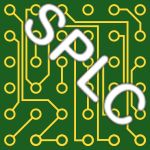151 papers:
 CASE-2015-HandokoL #order #performance #privacy
CASE-2015-HandokoL #order #performance #privacy- Efficient order sharing with privacy preservation via double auction with split delivery (SDH, HCL), pp. 69–74.
 DocEng-2015-FranzeMW #documentation #navigation #question
DocEng-2015-FranzeMW #documentation #navigation #question- Does a Split-View Aid Navigation Within Academic Documents? (JF, KM, MW), pp. 211–214.
 CHI-2015-HongHIL #named
CHI-2015-HongHIL #named- SplitBoard: A Simple Split Soft Keyboard for Wristwatch-sized Touch Screens (JH, SH, PI, GL), pp. 1233–1236.
 DUXU-IXD-2015-LeeLK #case study #navigation
DUXU-IXD-2015-LeeLK #case study #navigation- A Study on a Split-View Navigation System (JSL, HL, SWK), pp. 485–495.
 SIGIR-2015-LipaniLH #anti #bias #precise
SIGIR-2015-LipaniLH #anti #bias #precise- Splitting Water: Precision and Anti-Precision to Reduce Pool Bias (AL, ML, AH), pp. 103–112.
 SOSP-2015-YangHAKKAKAA #scheduling
SOSP-2015-YangHAKKAKAA #scheduling- Split-level I/O scheduling (SY, TH, NA, SSK, AK, SAK, RTK, ACAD, RHAD), pp. 474–489.
 DAC-2014-VaidyanathanDP #detection #reliability #stack #using
DAC-2014-VaidyanathanDP #detection #reliability #stack #using- Detecting Reliability Attacks during Split Fabrication using Test-only BEOL Stack (KV, BPD, LP), p. 6.
 VLDB-2014-GankidiTPHD
VLDB-2014-GankidiTPHD- Indexing HDFS Data in PDW: Splitting the data from the index (VRG, NT, JMP, AH, DJD), pp. 1520–1528.
 FASE-2014-StruberRTC #crawling #information retrieval #modelling #using
FASE-2014-StruberRTC #crawling #information retrieval #modelling #using- Splitting Models Using Information Retrieval and Model Crawling Techniques (DS, JR, GT, MC), pp. 47–62.
 LCT-TRE-2014-OzcelikCSTU #education
LCT-TRE-2014-OzcelikCSTU #education- The Effect of Split Attention in Surgical Education (EÖ, NEÇ, GS, ET, BU), pp. 3–10.
 ICPR-2014-GognaSM #matrix #using
ICPR-2014-GognaSM #matrix #using- Matrix Recovery Using Split Bregman (AG, AS, AM), pp. 1031–1036.
 SAC-2014-CruzMOV
SAC-2014-CruzMOV- Workload-aware table splitting for NoSQL (FC, FM, RO, RV), pp. 399–404.
 SAC-2014-ZhengBM #empirical #recommendation
SAC-2014-ZhengBM #empirical #recommendation- Splitting approaches for context-aware recommendation: an empirical study (YZ, RDB, BM), pp. 274–279.
 CASE-2013-YeWZML #approach #network #optimisation #predict #scalability
CASE-2013-YeWZML #approach #network #optimisation #predict #scalability- A signal split optimization approach based on model predictive control for large-scale urban traffic networks (BLY, WW, XZ, WJM, JL), pp. 904–909.
 DATE-2013-RajendranSK #question
DATE-2013-RajendranSK #question- Is split manufacturing secure? (JR, OS, RK), pp. 1259–1264.
 DocEng-2013-BilaucaH
DocEng-2013-BilaucaH- Splitting wide tables optimally (MB, PH), pp. 249–252.
 SIGMOD-2013-DeWittHNSAAFG #query
SIGMOD-2013-DeWittHNSAAFG #query- Split query processing in polybase (DJD, AH, RVN, SS, JAS, AA, MF, JG), pp. 1255–1266.
 KDD-2013-TabeiKKY #constraints #scalability #similarity
KDD-2013-TabeiKKY #constraints #scalability #similarity- Succinct interval-splitting tree for scalable similarity search of compound-protein pairs with property constraints (YT, AK, MK, YY), pp. 176–184.
 CADE-2013-HoderV
CADE-2013-HoderV- The 481 Ways to Split a Clause and Deal with Propositional Variables (KH, AV), pp. 450–464.
 CAV-2013-JegourelLS #model checking #statistics
CAV-2013-JegourelLS #model checking #statistics- Importance Splitting for Statistical Model Checking Rare Properties (CJ, AL, SS), pp. 576–591.
 DATE-2012-KwongG #architecture #constant #geometry #performance
DATE-2012-KwongG #architecture #constant #geometry #performance- A high performance split-radix FFT with constant geometry architecture (JK, MG), pp. 1537–1542.
 HT-2012-FahlHMS #named #network #social
HT-2012-FahlHMS #named #network #social- TrustSplit: usable confidentiality for social network messaging (SF, MH, TM, MS), pp. 145–154.
 ICSM-2012-CorazzaMM #approach #identifier #named #performance
ICSM-2012-CorazzaMM #approach #identifier #named #performance- LINSEN: An efficient approach to split identifiers and expand abbreviations (AC, SDM, VM), pp. 233–242.
 WCRE-2012-GuerroujGGAP #algorithm #identifier #named #performance
WCRE-2012-GuerroujGGAP #algorithm #identifier #named #performance- TRIS: A Fast and Accurate Identifiers Splitting and Expansion Algorithm (LG, PG, YGG, GA, MDP), pp. 103–112.
 STOC-2012-CebrianCVV #contract #robust
STOC-2012-CebrianCVV #contract #robust- Finding red balloons with split contracts: robustness to individuals’ selfishness (MC, LC, AV, PV), pp. 775–788.
 CIKM-2012-ChengZPW #clustering
CIKM-2012-ChengZPW #clustering- Hierarchical co-clustering based on entropy splitting (WC, XZ, FP, WW), pp. 1472–1476.
 ICML-2012-WangC12a #clustering
ICML-2012-WangC12a #clustering- Clustering to Maximize the Ratio of Split to Diameter (JW, JC), p. 74.
 ICML-2012-XiangMCCTZ #clustering #framework
ICML-2012-XiangMCCTZ #clustering #framework- A Split-Merge Framework for Comparing Clusterings (QX, QM, KMAC, HLC, IWT, ZZ), p. 164.
 ICPR-2012-RaketN #algorithm
ICPR-2012-RaketN #algorithm- A splitting algorithm for directional regularization and sparsification (LLR, MN), pp. 3094–3098.
 VMCAI-2012-ErmisHP
VMCAI-2012-ErmisHP- Splitting via Interpolants (EE, JH, AP), pp. 186–201.
 SIGMOD-2011-Bajda-PawlikowskiASP #execution #performance #query
SIGMOD-2011-Bajda-PawlikowskiASP #execution #performance #query- Efficient processing of data warehousing queries in a split execution environment (KBP, DJA, AS, EP), pp. 1165–1176.
 CSMR-2011-KohlKPDM #analysis #maintenance #multi #using
CSMR-2011-KohlKPDM #analysis #maintenance #multi #using- Using Multivariate Split Analysis for an Improved Maintenance of Automotive Diagnosis Functions (JK, AK, JPP, AD, SM), pp. 305–308.
 ICPC-2011-DitGPA #feature model #identifier #question
ICPC-2011-DitGPA #feature model #identifier #question- Can Better Identifier Splitting Techniques Help Feature Location? (BD, LG, DP, GA), pp. 11–20.
 MLDM-2011-Grabczewski
MLDM-2011-Grabczewski- Separability of Split Value Criterion with Weighted Separation Gains (KG), pp. 88–98.
 SEKE-2011-VilkomirKT #algorithm #case study #interface #testing #using
SEKE-2011-VilkomirKT #algorithm #case study #interface #testing #using- Interface Testing Using a Subgraph Splitting Algorithm: A Case Study (SV, AAK, NT), pp. 219–224.
 ICLP-J-2011-SlotaLS #hybrid #knowledge base
ICLP-J-2011-SlotaLS #hybrid #knowledge base- Splitting and updating hybrid knowledge bases (MS, JL, TS), pp. 801–819.
 DAC-2010-CohenR #compilation #embedded #manycore
DAC-2010-CohenR #compilation #embedded #manycore- Processor virtualization and split compilation for heterogeneous multicore embedded systems (AC, ER), pp. 102–107.
 DAC-2010-CongLR #concurrent #named
DAC-2010-CongLR #concurrent #named- ACES: application-specific cycle elimination and splitting for deadlock-free routing on irregular network-on-chip (JC, CL, GR), pp. 443–448.
 DATE-2010-AbellaCCV
DATE-2010-AbellaCCV- The split register file (JA, JC, PC, XV), pp. 945–948.
 ICFP-2010-BergstromRRSF #lazy evaluation
ICFP-2010-BergstromRRSF #lazy evaluation- Lazy tree splitting (LB, MR, JHR, AS, MF), pp. 93–104.
 AdaEurope-2010-AnderssonP #ada #algorithm #implementation #manycore #realtime #scheduling #using
AdaEurope-2010-AnderssonP #ada #algorithm #implementation #manycore #realtime #scheduling #using- Implementing Multicore Real-Time Scheduling Algorithms Based on Task Splitting Using Ada 2012 (BA, LMP), pp. 54–67.
 ICPR-2010-XiongOL #algorithm #composition #recursion
ICPR-2010-XiongOL #algorithm #composition #recursion- A Recursive and Model-Constrained Region Splitting Algorithm for Cell Clump Decomposition (WX, SHO, JHL), pp. 4416–4419.
 SAC-2010-SenguptaMS #multi #named #network #protocol
SAC-2010-SenguptaMS #multi #named #network #protocol- MMSRP: multi-wavelength Markov-based split reservation protocol for DWDM optical networks (MS, SKM, DS), pp. 689–693.
 PPoPP-2010-TzannesCBV #adaptation #lazy evaluation #runtime
PPoPP-2010-TzannesCBV #adaptation #lazy evaluation #runtime- Lazy binary-splitting: a run-time adaptive work-stealing scheduler (AT, GCC, RB, UV), pp. 179–190.
 CAV-2010-CohenNS10a #composition #ltl #named #verification
CAV-2010-CohenNS10a #composition #ltl #named #verification- SPLIT: A Compositional LTL Verifier (AC, KSN, YS), pp. 558–561.
 ASE-2009-CassellAGN #automation #clustering #towards #using
ASE-2009-CassellAGN #automation #clustering #towards #using- Towards Automating Class-Splitting Using Betweenness Clustering (KC, PA, LG, JN), pp. 595–599.
 CASE-2009-MakkapatiN #detection
CASE-2009-MakkapatiN #detection- Clump splitting based on detection of dominant points from contours (VM, SKN), pp. 197–201.
 MSR-2009-EnslenHPV #analysis #automation #identifier #mining #source code
MSR-2009-EnslenHPV #analysis #automation #identifier #mining #source code- Mining source code to automatically split identifiers for software analysis (EE, EH, LLP, KVS), pp. 71–80.
 CIAA-J-2008-DixonES09 #analysis
CIAA-J-2008-DixonES09 #analysis- Analysis of Bit-Split Languages for Packet Scanning and Experiments with Wildcard Matching (RD, ÖE, TS), pp. 597–612.
 ICALP-v1-2009-DietzfelbingerR
ICALP-v1-2009-DietzfelbingerR- Applications of a Splitting Trick (MD, MR), pp. 354–365.
 HCI-NT-2009-AbeOO #automation #image #using
HCI-NT-2009-AbeOO #automation #image #using- Automatic Method for Measuring Eye Blinks Using Split-Interlaced Images (KA, SO, MO), pp. 3–11.
 CIKM-2009-KhaitanDGS #data-driven
CIKM-2009-KhaitanDGS #data-driven- Data-driven compound splitting method for english compounds in domain names (SK, AD, SG, AS), pp. 207–214.
 ECIR-2009-GoyalPHJ #segmentation
ECIR-2009-GoyalPHJ #segmentation- Split and Merge Based Story Segmentation in News Videos (AG, PP, FH, JMJ), pp. 766–770.
 ICML-2009-BouchardZ
ICML-2009-BouchardZ- Split variational inference (GB, OZ), pp. 57–64.
 RecSys-2009-BaltrunasR #collaboration
RecSys-2009-BaltrunasR #collaboration- Context-based splitting of item ratings in collaborative filtering (LB, FR), pp. 245–248.
 CC-2009-BraunH #source code
CC-2009-BraunH #source code- Register Spilling and Live-Range Splitting for SSA-Form Programs (MB, SH), pp. 174–189.
 DRR-2008-GaoT #approach
DRR-2008-GaoT #approach- A mixed approach to book splitting (LG, ZT), p. 68150.
 CSMR-2008-GlorieZHD #case study #concept analysis #evolution #experience #industrial #scalability #using
CSMR-2008-GlorieZHD #case study #concept analysis #evolution #experience #industrial #scalability #using- Splitting a Large Software Archive for Easing Future Software Evolution — An Industrial Experience Report using Formal Concept Analysis (MG, AZ, LH, AvD), pp. 153–162.
 SAS-2008-Simon #control flow
SAS-2008-Simon #control flow- Splitting the Control Flow with Boolean Flags (AS), pp. 315–331.
 CIAA-2008-DixonES #analysis
CIAA-2008-DixonES #analysis- Automata-Theoretic Analysis of Bit-Split Languages for Packet Scanning (RD, ÖE, TS), pp. 141–150.
 CSCW-2008-MorrisTB #collaboration #personalisation #web
CSCW-2008-MorrisTB #collaboration #personalisation #web- Enhancing collaborative web search with personalization: groupization, smart splitting, and group hit-highlighting (MRM, JT, SB), pp. 481–484.
 ICPR-2008-SpringerK #feature model
ICPR-2008-SpringerK #feature model- Feature selection via decision tree surrogate splits (CS, WPK), pp. 1–5.
 ICPR-2008-XuP #image
ICPR-2008-XuP #image- Finding the splitting vector for image resolution up-conversion (XX, HP), pp. 1–4.
 SIGIR-2008-GoharianM #detection #documentation #on the
SIGIR-2008-GoharianM #detection #documentation #on the- On document splitting in passage detection (NG, SSRM), pp. 833–834.
 SAC-2008-DouillardJ #constraints #heuristic
SAC-2008-DouillardJ #constraints #heuristic- Splitting heuristics for disjunctive numerical constraints (TD, CJ), pp. 140–144.
 SAC-2008-LandD #enterprise #ontology
SAC-2008-LandD #enterprise #ontology- Enterprise ontology based splitting and contracting of organizations (MOL, JLGD), pp. 524–531.
 FSE-2008-LivshitsK #bound #named #web
FSE-2008-LivshitsK #bound #named #web- Doloto: code splitting for network-bound web 2.0 applications (VBL, EK), pp. 350–360.
 HPDC-2008-KhannaCKSSKF #data transfer #multi #network #optimisation #using
HPDC-2008-KhannaCKSSKF #data transfer #multi #network #optimisation #using- Multi-hop path splitting and multi-pathing optimizations for data transfers over shared wide-area networks using gridFTP (GK, ÜVÇ, TMK, PS, JHS, RK, ITF), pp. 225–226.
 ISMM-2008-CurialZAGCSA #named
ISMM-2008-CurialZAGCSA #named- MPADS: memory-pooling-assisted data splitting (SC, PZ, JNA, YG, SC, RS, RA), pp. 101–110.
 PPoPP-2008-LevM #hardware #memory management #transaction #using
PPoPP-2008-LevM #hardware #memory management #transaction #using- Split hardware transactions: true nesting of transactions using best-effort hardware transactional memory (YL, JWM), pp. 197–206.
 CAV-2008-VakkalankaGK #order #reduction #source code #verification
CAV-2008-VakkalankaGK #order #reduction #source code #verification- Dynamic Verification of MPI Programs with Reductions in Presence of Split Operations and Relaxed Orderings (SSV, GG, RMK), pp. 66–79.
 IJCAR-2008-FietzkeW
IJCAR-2008-FietzkeW- Labelled Splitting (AF, CW), pp. 459–474.
 DAC-2007-BonnyH #performance
DAC-2007-BonnyH #performance- Instruction Splitting for Efficient Code Compression (TB, JH), pp. 646–651.
 DATE-2007-MeijerKTK #interactive #network #process
DATE-2007-MeijerKTK #interactive #network #process- Interactive presentation: A process splitting transformation for Kahn process networks (SM, BK, AT, EAdK), pp. 1355–1360.
 DATE-2007-NaguibG #process #simulation
DATE-2007-NaguibG #process #simulation- Speeding up SystemC simulation through process splitting (YNN, RSG), pp. 111–116.
 HCI-IPT-2007-KimL #design #evaluation #readability
HCI-IPT-2007-KimL #design #evaluation #readability- The Design and Evaluation of a Diagonally Splitted Column to Improve Text Readability on a Small Screen (YJK, WL), pp. 384–393.
 SAC-2007-NazKOF #configuration management #embedded #novel
SAC-2007-NazKOF #configuration management #embedded #novel- Reconfigurable split data caches: a novel scheme for embedded systems (AN, KMK, JHO, PF), pp. 707–712.
 CADE-2007-AntonsenW
CADE-2007-AntonsenW- A Labelled System for IPL with Variable Splitting (RA, AW), pp. 132–146.
 PLDI-2006-NakaikeIKN
PLDI-2006-NakaikeIKN- Profile-based global live-range splitting (TN, TI, HK, TN), pp. 216–227.
 ICPR-v1-2006-GayuboGFMP #detection #fault #online #process
ICPR-v1-2006-GayuboGFMP #detection #fault #online #process- On-line machine vision system for detect split defects in sheet-metal forming processes (FG, JLG, EdlFL, FMT, JRP), pp. 723–726.
 ICPR-v1-2006-WenGL #clustering #detection #markov #monte carlo
ICPR-v1-2006-WenGL #clustering #detection #markov #monte carlo- Markov Chain Monte Carlo Data Association for Merge and Split Detection in Tracking Protein Clusters (QW, JG, KLP), pp. 1030–1033.
 ICPR-v2-2006-ZhanWG #approach #image #robust #segmentation
ICPR-v2-2006-ZhanWG #approach #image #robust #segmentation- A Robust Split-and-Merge Text Segmentation Approach for Images (YZ, WW, WG), pp. 1002–1005.
 ICPR-v3-2006-SchmidtWY #approach
ICPR-v3-2006-SchmidtWY #approach- A Split & Merge Approach to Metric-Topological Map-Building (JS, CKW, WKY), pp. 1069–1072.
 ISMM-2006-SagonasW
ISMM-2006-SagonasW- Mark and split (KFS, JW), pp. 29–39.
 OSDI-2006-Ta-MinLL #configuration management #interface #operating system #trust
OSDI-2006-Ta-MinLL #configuration management #interface #operating system #trust- Splitting Interfaces: Making Trust Between Applications and Operating Systems Configurable (RTM, LL, DL), pp. 279–292.
 SIGMOD-2005-JahangiriSS #maintenance #multi #named #performance
SIGMOD-2005-JahangiriSS #maintenance #multi #named #performance- SHIFT-SPLIT: I/O Efficient Maintenance of Wavelet-Transformed Multidimensional Data (MJ, DS, CS), pp. 275–286.
 VLDB-2005-RaseticSEN #performance
VLDB-2005-RaseticSEN #performance- A Trajectory Splitting Model for Efficient Spatio-Temporal Indexing (SR, JS, JE, MAN), pp. 934–945.
 CC-2005-BartonTBA
CC-2005-BartonTBA- Generalized Index-Set Splitting (CB, AT, BB, JNA), pp. 106–120.
 CSMR-2004-Zdun #maintenance #re-engineering #using
CSMR-2004-Zdun #maintenance #re-engineering #using- Using Split Objects for Maintenance and Reengineering Tasks (UZ), pp. 105–114.
 PLDI-2004-ZhongOSD #array #using
PLDI-2004-ZhongOSD #array #using- Array regrouping and structure splitting using whole-program reference affinity (YZ, MO, XS, CD), pp. 255–266.
 ICPR-v2-2004-KaratzasA #image #segmentation #using #web
ICPR-v2-2004-KaratzasA #image #segmentation #using #web- Text Extraction from Web Images Based on A Split-and-Merge Segmentation Method Using Colour Perception (DK, AA), pp. 634–637.
 ICPR-v3-2004-XiangW #clustering #image #segmentation
ICPR-v3-2004-XiangW #clustering #image #segmentation- Range Image Segmentation Based on Split-Merge Clustering (RX, RW), pp. 614–617.
 ICPR-v4-2004-GenovesioO #multi
ICPR-v4-2004-GenovesioO #multi- Split and Merge Data Association Filter for Dense Multi-target Tracking (AG, JCOM), pp. 677–680.
 ICPR-v4-2004-WeiCN #image
ICPR-v4-2004-WeiCN #image- Digital Image Restoration by Exposure-Splitting and Registration (ZW, YC, ARN), pp. 657–660.
 KR-2004-QiLG #consistency #knowledge base
KR-2004-QiLG #consistency #knowledge base- A Split-Combination Method for Merging Inconsistent Possibilistic Knowledge Bases (GQ, WL, DHG), pp. 348–356.
 ICLP-2004-VennekensGD
ICLP-2004-VennekensGD- Splitting an Operator (JV, DG, MD), pp. 195–209.
 DATE-2003-FalkM #control flow #source code
DATE-2003-FalkM #control flow #source code- Control Flow Driven Splitting of Loop Nests at the Source Code Level (HF, PM), pp. 10410–10415.
 ICDAR-2003-Lin03a
ICDAR-2003-Lin03a- Text-mining based journal splitting (XL), pp. 1075–1079.
 WCRE-2003-ZouG #analysis #detection #using
WCRE-2003-ZouG #analysis #detection #using- Detecting Merging and Splitting using Origin Analysis (LZ, MWG), pp. 146–154.
 ICML-2003-YamadaSYT #data-driven #database #induction #standard
ICML-2003-YamadaSYT #data-driven #database #induction #standard- Decision-tree Induction from Time-series Data Based on a Standard-example Split Test (YY, ES, HY, KT), pp. 840–847.
 MLDM-2003-CeciAM
MLDM-2003-CeciAM- Simplification Methods for Model Trees with Regression and Splitting Nodes (MC, AA, DM), pp. 20–34.
 SOSP-2003-CastroDKNRS #multi #named
SOSP-2003-CastroDKNRS #multi #named- SplitStream: high-bandwidth multicast in cooperative environments (MC, PD, AMK, AN, AITR, AS), pp. 298–313.
 ICML-2002-TakechiS #induction
ICML-2002-TakechiS #induction- Finding an Optimal Gain-Ratio Subset-Split Test for a Set-Valued Attribute in Decision Tree Induction (FT, ES), pp. 618–625.
 SAC-2002-FuTS #algorithm #similarity
SAC-2002-FuTS #algorithm #similarity- Node splitting algorithms in tree-structured high-dimensional indexes for similarity search (YF, JCT, SRS), pp. 766–770.
 ICDAR-2001-HadjarHI #approach #composition #using
ICDAR-2001-HadjarHI #approach #composition #using- Newspaper Page Decomposition Using a Split and Merge Approach (KH, OH, RI), pp. 1186–1189.
 SAC-2001-GaliassoW #algorithm #hybrid #multi #problem #search-based
SAC-2001-GaliassoW #algorithm #hybrid #multi #problem #search-based- A hybrid genetic algorithm for the point to multipoint routing problem with single split paths (PG, RLW), pp. 327–332.
 DAC-2000-MoonKRS #image
DAC-2000-MoonKRS #image- To split or to conjoin: the question in image computation (IHM, JHK, KR, FS), pp. 23–28.
 DATE-2000-HsiehP #architecture #optimisation
DATE-2000-HsiehP #architecture #optimisation- Architectural Power Optimization by Bus Splitting (CTH, MP), pp. 612–616.
 PLDI-2000-Lucco #taxonomy
PLDI-2000-Lucco #taxonomy- Split-stream dictionary program compression (SL), pp. 27–34.
 ICML-2000-DrummondH
ICML-2000-DrummondH- Exploiting the Cost (In)sensitivity of Decision Tree Splitting Criteria (CD, RCH), pp. 239–246.
 ICPR-v1-2000-BorgesA #2d #algorithm #image #segmentation
ICPR-v1-2000-BorgesA #2d #algorithm #image #segmentation- A Split-and-Merge Segmentation Algorithm for Line Extraction in 2-D Range Image (GdAB, MJA), pp. 1441–1444.
 SPLC-2000-CoriatJB
SPLC-2000-CoriatJB- The SPLIT Method (MC, JJ, FB), pp. 147–166.
 HPDC-2000-ThainL #execution #named
HPDC-2000-ThainL #execution #named- Bypass: A Tool for Building Split Execution Systems (DT, ML), pp. 79–86.
 ICML-1999-Robnik-SikonjaK #dependence #modelling
ICML-1999-Robnik-SikonjaK #dependence #modelling- Attribute Dependencies, Understandability and Split Selection in Tree Based Models (MRS, IK), pp. 344–353.
 OOPSLA-1999-KrintzCH #java #using
OOPSLA-1999-KrintzCH #java #using- Reducing Transfer Delay Using Java Class File Splitting and Prefetching (CK, BC, UH), pp. 276–291.
 ICSE-1999-HerbslebG #revisited
ICSE-1999-HerbslebG #revisited- Splitting the Organization and Integrating the Code: Conway’s Law Revisited (JDH, REG), pp. 85–95.
 ICLP-1999-GuptaP #distributed #memory management #named
ICLP-1999-GuptaP #distributed #memory management #named- Stack-splitting: Or-/And-parallelism on Distributed Memory Machines (GG, EP), pp. 290–304.
 VLDB-1998-GarciaLL #on the
VLDB-1998-GarciaLL #on the- On Optimal Node Splitting for R-trees (YJG, MAL, STL), pp. 334–344.
 ICPR-1998-FerriMAS #algorithm #estimation #using
ICPR-1998-FerriMAS #algorithm #estimation #using- Variable-size block matching algorithm for motion estimation using a perceptual-based splitting criterion (FJF, JM, JVA, JS), pp. 286–288.
 ICPR-1998-ZhaHH #3d #algorithm #modelling #recursion #using
ICPR-1998-ZhaHH #3d #algorithm #modelling #recursion #using- A recursive fitting-and-splitting algorithm for 3-D object modeling using superquadrics (HZ, TH, TH), pp. 658–662.
 CC-1998-CooperS #graph
CC-1998-CooperS #graph- Live Range Splitting in a Graph Coloring Register Allocator (KDC, LTS), pp. 174–187.
 DAC-1997-KernsY #congruence #network #reduction
DAC-1997-KernsY #congruence #network #reduction- Preservation of Passivity During RLC Network Reduction via Split Congruence Transformations (KJK, ATY), pp. 34–39.
 VLDB-1997-LeeLWS #database #design #multi #physics
VLDB-1997-LeeLWS #database #design #multi #physics- A Region Splitting Strategy for Physical Database Design of Multidimensional File Organizations (JHL, YKL, KYW, IYS), pp. 416–425.
 VLDB-1997-MorimotoIM #performance
VLDB-1997-MorimotoIM #performance- Efficient Construction of Regression Trees with Range and Region Splitting (YM, HI, SM), pp. 166–175.
 ICALP-1997-GrossiI #algorithm #order #performance #problem
ICALP-1997-GrossiI #algorithm #order #performance #problem- Efficient Splitting and Merging Algorithms for Order Decomposable Problems (Extended Abstract) (RG, GFI), pp. 605–615.
 ICFP-1997-BlumeA #approach #higher-order #named #optimisation
ICFP-1997-BlumeA #approach #higher-order #named #optimisation- λ-Splitting: A Higher-Order Approach to Cross-Module Optimizations (MB, AWA), pp. 112–124.
 STOC-1996-NagamochiI #graph
STOC-1996-NagamochiI #graph- Deterministic Õ(nm) Time Edge-Splitting in Undirected Graphs (HN, TI), pp. 64–73.
 ICPR-1996-ChatzisP #fuzzy
ICPR-1996-ChatzisP #fuzzy- Introducing the select and split fuzzy cell Hough transform (VC, IP), pp. 552–556.
 OOPSLA-1996-BardouD
OOPSLA-1996-BardouD- Split Objects: a Disciplined Use of Delegation within Objects (DB, CD), pp. 122–137.
 OOPSLA-1996-R
OOPSLA-1996-R- Reorganizing Split Objects (HA), pp. 138–149.
 CC-1996-JanssenC
CC-1996-JanssenC- Controlled Node Splitting (JJ, HC), pp. 44–58.
 ICALP-1995-Vogler #equivalence
ICALP-1995-Vogler #equivalence- The Limit of Split_n-Language Equivalence (WV), pp. 636–647.
 ICML-1995-Brodley #automation
ICML-1995-Brodley #automation- Automatic Selection of Split Criterion during Tree Growing Based on Node Location (CEB), pp. 73–80.
 ICML-1995-FultonKS #algorithm #multi #performance
ICML-1995-FultonKS #algorithm #multi #performance- Efficient Algorithms for Finding Multi-way Splits for Decision Trees (TF, SK, SS), pp. 244–251.
 PLDI-1994-KurlanderF #low cost
PLDI-1994-KurlanderF #low cost- Zero-cost Range Splitting (SMK, CNF), pp. 257–265.
 STOC-1994-Gabow #algorithm #graph #performance
STOC-1994-Gabow #algorithm #graph #performance- Efficient splitting off algorithms for graphs (HNG), pp. 696–705.
 STOC-1994-Miltersen #bound #problem #random
STOC-1994-Miltersen #bound #problem #random- Lower bounds for union-split-find related problems on random access machines (PBM), pp. 625–634.
 ICLP-1994-LifschitzT #logic programming
ICLP-1994-LifschitzT #logic programming- Splitting a Logic Program (VL, HT), pp. 23–37.
 WSA-1992-GiannottiL #abstract interpretation #specification #using
WSA-1992-GiannottiL #abstract interpretation #specification #using- Using Abstract Interpretation for Gate splitting in LOTOS Specifications (FG, DL), pp. 194–204.
 PLDI-1990-ChambersU #analysis #dynamic typing #object-oriented #optimisation #source code
PLDI-1990-ChambersU #analysis #dynamic typing #object-oriented #optimisation #source code- Iterative Type Analysis and Extended Message Splitting: Optimizing Dynamically-Typed Object-Oriented Programs (CC, DU), pp. 150–164.
 STOC-1990-Poutre #bound #pointer #problem
STOC-1990-Poutre #bound #pointer #problem- Lower Bounds for the Union-Find and the Split-Find Problem on Pointer Machines (JALP), pp. 34–44.
 ML-1990-Kadie #algorithm #concept #set
ML-1990-Kadie #algorithm #concept #set- Conceptual Set Covering: Improving Fit-And-Split Algorithms (CMK), pp. 40–48.
 ML-1990-UtgoffB #incremental #multi
ML-1990-UtgoffB #incremental #multi- An Incremental Method for Finding Multivariate Splits for Decision Trees (PEU, CEB), pp. 58–65.
 ML-1989-LambertTL #algorithm #concept #hybrid #learning #recursion
ML-1989-LambertTL #algorithm #concept #hybrid #learning #recursion- Generalized Recursive Splitting Algorithms for Learning Hybrid Concepts (BLL, DKT, SCYL), pp. 496–498.
 DAC-1988-Cheng #generative #testing
DAC-1988-Cheng #generative #testing- Split Circuit Model for Test Generation (WTC), pp. 96–101.
 VLDB-1988-PuKH #process #transaction
VLDB-1988-PuKH #process #transaction- Split-Transactions for Open-Ended Activities (CP, GEK, NCH), pp. 26–37.
 ICALP-1987-MehlhornNA #bound #complexity #problem
ICALP-1987-MehlhornNA #bound #complexity #problem- A Lower Bound for the Complexity of the Union-Split-Find Problem (KM, SN, HA), pp. 479–488.
 GG-1982-EhrigS #graph transformation
GG-1982-EhrigS #graph transformation- Church-Rosser properties for graph replacement systems with unique splitting (HE, JS), pp. 82–101.
 VLDB-1980-Kent #concept
VLDB-1980-Kent #concept- Splitting the Conceptual Schema (WK), pp. 10–14.
 SDCG-1980-Watt #parsing
SDCG-1980-Watt #parsing- Rule splitting and attribute-directed parsing (DAW), pp. 363–392.
 VLDB-1978-NakamuraM #analysis
VLDB-1978-NakamuraM #analysis- An Analysis of Storage Utilization Factor in Block Split Data Structuring Scheme (TN, TM), pp. 489–495.
 CASE-2015-HandokoL #order #performance #privacy
CASE-2015-HandokoL #order #performance #privacy DocEng-2015-FranzeMW #documentation #navigation #question
DocEng-2015-FranzeMW #documentation #navigation #question CHI-2015-HongHIL #named
CHI-2015-HongHIL #named DUXU-IXD-2015-LeeLK #case study #navigation
DUXU-IXD-2015-LeeLK #case study #navigation SIGIR-2015-LipaniLH #anti #bias #precise
SIGIR-2015-LipaniLH #anti #bias #precise SOSP-2015-YangHAKKAKAA #scheduling
SOSP-2015-YangHAKKAKAA #scheduling DAC-2014-VaidyanathanDP #detection #reliability #stack #using
DAC-2014-VaidyanathanDP #detection #reliability #stack #using VLDB-2014-GankidiTPHD
VLDB-2014-GankidiTPHD FASE-2014-StruberRTC #crawling #information retrieval #modelling #using
FASE-2014-StruberRTC #crawling #information retrieval #modelling #using LCT-TRE-2014-OzcelikCSTU #education
LCT-TRE-2014-OzcelikCSTU #education ICPR-2014-GognaSM #matrix #using
ICPR-2014-GognaSM #matrix #using SAC-2014-CruzMOV
SAC-2014-CruzMOV SAC-2014-ZhengBM #empirical #recommendation
SAC-2014-ZhengBM #empirical #recommendation CASE-2013-YeWZML #approach #network #optimisation #predict #scalability
CASE-2013-YeWZML #approach #network #optimisation #predict #scalability DATE-2013-RajendranSK #question
DATE-2013-RajendranSK #question DocEng-2013-BilaucaH
DocEng-2013-BilaucaH SIGMOD-2013-DeWittHNSAAFG #query
SIGMOD-2013-DeWittHNSAAFG #query KDD-2013-TabeiKKY #constraints #scalability #similarity
KDD-2013-TabeiKKY #constraints #scalability #similarity CADE-2013-HoderV
CADE-2013-HoderV CAV-2013-JegourelLS #model checking #statistics
CAV-2013-JegourelLS #model checking #statistics DATE-2012-KwongG #architecture #constant #geometry #performance
DATE-2012-KwongG #architecture #constant #geometry #performance HT-2012-FahlHMS #named #network #social
HT-2012-FahlHMS #named #network #social ICSM-2012-CorazzaMM #approach #identifier #named #performance
ICSM-2012-CorazzaMM #approach #identifier #named #performance WCRE-2012-GuerroujGGAP #algorithm #identifier #named #performance
WCRE-2012-GuerroujGGAP #algorithm #identifier #named #performance STOC-2012-CebrianCVV #contract #robust
STOC-2012-CebrianCVV #contract #robust CIKM-2012-ChengZPW #clustering
CIKM-2012-ChengZPW #clustering ICML-2012-WangC12a #clustering
ICML-2012-WangC12a #clustering ICML-2012-XiangMCCTZ #clustering #framework
ICML-2012-XiangMCCTZ #clustering #framework ICPR-2012-RaketN #algorithm
ICPR-2012-RaketN #algorithm VMCAI-2012-ErmisHP
VMCAI-2012-ErmisHP SIGMOD-2011-Bajda-PawlikowskiASP #execution #performance #query
SIGMOD-2011-Bajda-PawlikowskiASP #execution #performance #query CSMR-2011-KohlKPDM #analysis #maintenance #multi #using
CSMR-2011-KohlKPDM #analysis #maintenance #multi #using ICPC-2011-DitGPA #feature model #identifier #question
ICPC-2011-DitGPA #feature model #identifier #question MLDM-2011-Grabczewski
MLDM-2011-Grabczewski SEKE-2011-VilkomirKT #algorithm #case study #interface #testing #using
SEKE-2011-VilkomirKT #algorithm #case study #interface #testing #using ICLP-J-2011-SlotaLS #hybrid #knowledge base
ICLP-J-2011-SlotaLS #hybrid #knowledge base DAC-2010-CohenR #compilation #embedded #manycore
DAC-2010-CohenR #compilation #embedded #manycore DAC-2010-CongLR #concurrent #named
DAC-2010-CongLR #concurrent #named DATE-2010-AbellaCCV
DATE-2010-AbellaCCV ICFP-2010-BergstromRRSF #lazy evaluation
ICFP-2010-BergstromRRSF #lazy evaluation AdaEurope-2010-AnderssonP #ada #algorithm #implementation #manycore #realtime #scheduling #using
AdaEurope-2010-AnderssonP #ada #algorithm #implementation #manycore #realtime #scheduling #using ICPR-2010-XiongOL #algorithm #composition #recursion
ICPR-2010-XiongOL #algorithm #composition #recursion SAC-2010-SenguptaMS #multi #named #network #protocol
SAC-2010-SenguptaMS #multi #named #network #protocol PPoPP-2010-TzannesCBV #adaptation #lazy evaluation #runtime
PPoPP-2010-TzannesCBV #adaptation #lazy evaluation #runtime CAV-2010-CohenNS10a #composition #ltl #named #verification
CAV-2010-CohenNS10a #composition #ltl #named #verification ASE-2009-CassellAGN #automation #clustering #towards #using
ASE-2009-CassellAGN #automation #clustering #towards #using CASE-2009-MakkapatiN #detection
CASE-2009-MakkapatiN #detection MSR-2009-EnslenHPV #analysis #automation #identifier #mining #source code
MSR-2009-EnslenHPV #analysis #automation #identifier #mining #source code CIAA-J-2008-DixonES09 #analysis
CIAA-J-2008-DixonES09 #analysis ICALP-v1-2009-DietzfelbingerR
ICALP-v1-2009-DietzfelbingerR HCI-NT-2009-AbeOO #automation #image #using
HCI-NT-2009-AbeOO #automation #image #using CIKM-2009-KhaitanDGS #data-driven
CIKM-2009-KhaitanDGS #data-driven ECIR-2009-GoyalPHJ #segmentation
ECIR-2009-GoyalPHJ #segmentation ICML-2009-BouchardZ
ICML-2009-BouchardZ RecSys-2009-BaltrunasR #collaboration
RecSys-2009-BaltrunasR #collaboration CC-2009-BraunH #source code
CC-2009-BraunH #source code DRR-2008-GaoT #approach
DRR-2008-GaoT #approach CSMR-2008-GlorieZHD #case study #concept analysis #evolution #experience #industrial #scalability #using
CSMR-2008-GlorieZHD #case study #concept analysis #evolution #experience #industrial #scalability #using SAS-2008-Simon #control flow
SAS-2008-Simon #control flow CIAA-2008-DixonES #analysis
CIAA-2008-DixonES #analysis CSCW-2008-MorrisTB #collaboration #personalisation #web
CSCW-2008-MorrisTB #collaboration #personalisation #web ICPR-2008-SpringerK #feature model
ICPR-2008-SpringerK #feature model ICPR-2008-XuP #image
ICPR-2008-XuP #image SIGIR-2008-GoharianM #detection #documentation #on the
SIGIR-2008-GoharianM #detection #documentation #on the SAC-2008-DouillardJ #constraints #heuristic
SAC-2008-DouillardJ #constraints #heuristic SAC-2008-LandD #enterprise #ontology
SAC-2008-LandD #enterprise #ontology FSE-2008-LivshitsK #bound #named #web
FSE-2008-LivshitsK #bound #named #web HPDC-2008-KhannaCKSSKF #data transfer #multi #network #optimisation #using
HPDC-2008-KhannaCKSSKF #data transfer #multi #network #optimisation #using ISMM-2008-CurialZAGCSA #named
ISMM-2008-CurialZAGCSA #named PPoPP-2008-LevM #hardware #memory management #transaction #using
PPoPP-2008-LevM #hardware #memory management #transaction #using CAV-2008-VakkalankaGK #order #reduction #source code #verification
CAV-2008-VakkalankaGK #order #reduction #source code #verification IJCAR-2008-FietzkeW
IJCAR-2008-FietzkeW DAC-2007-BonnyH #performance
DAC-2007-BonnyH #performance DATE-2007-MeijerKTK #interactive #network #process
DATE-2007-MeijerKTK #interactive #network #process DATE-2007-NaguibG #process #simulation
DATE-2007-NaguibG #process #simulation HCI-IPT-2007-KimL #design #evaluation #readability
HCI-IPT-2007-KimL #design #evaluation #readability SAC-2007-NazKOF #configuration management #embedded #novel
SAC-2007-NazKOF #configuration management #embedded #novel CADE-2007-AntonsenW
CADE-2007-AntonsenW PLDI-2006-NakaikeIKN
PLDI-2006-NakaikeIKN ICPR-v1-2006-GayuboGFMP #detection #fault #online #process
ICPR-v1-2006-GayuboGFMP #detection #fault #online #process ICPR-v1-2006-WenGL #clustering #detection #markov #monte carlo
ICPR-v1-2006-WenGL #clustering #detection #markov #monte carlo ICPR-v2-2006-ZhanWG #approach #image #robust #segmentation
ICPR-v2-2006-ZhanWG #approach #image #robust #segmentation ICPR-v3-2006-SchmidtWY #approach
ICPR-v3-2006-SchmidtWY #approach ISMM-2006-SagonasW
ISMM-2006-SagonasW OSDI-2006-Ta-MinLL #configuration management #interface #operating system #trust
OSDI-2006-Ta-MinLL #configuration management #interface #operating system #trust SIGMOD-2005-JahangiriSS #maintenance #multi #named #performance
SIGMOD-2005-JahangiriSS #maintenance #multi #named #performance VLDB-2005-RaseticSEN #performance
VLDB-2005-RaseticSEN #performance CC-2005-BartonTBA
CC-2005-BartonTBA CSMR-2004-Zdun #maintenance #re-engineering #using
CSMR-2004-Zdun #maintenance #re-engineering #using PLDI-2004-ZhongOSD #array #using
PLDI-2004-ZhongOSD #array #using ICPR-v2-2004-KaratzasA #image #segmentation #using #web
ICPR-v2-2004-KaratzasA #image #segmentation #using #web ICPR-v3-2004-XiangW #clustering #image #segmentation
ICPR-v3-2004-XiangW #clustering #image #segmentation ICPR-v4-2004-GenovesioO #multi
ICPR-v4-2004-GenovesioO #multi ICPR-v4-2004-WeiCN #image
ICPR-v4-2004-WeiCN #image KR-2004-QiLG #consistency #knowledge base
KR-2004-QiLG #consistency #knowledge base ICLP-2004-VennekensGD
ICLP-2004-VennekensGD DATE-2003-FalkM #control flow #source code
DATE-2003-FalkM #control flow #source code ICDAR-2003-Lin03a
ICDAR-2003-Lin03a WCRE-2003-ZouG #analysis #detection #using
WCRE-2003-ZouG #analysis #detection #using ICML-2003-YamadaSYT #data-driven #database #induction #standard
ICML-2003-YamadaSYT #data-driven #database #induction #standard MLDM-2003-CeciAM
MLDM-2003-CeciAM SOSP-2003-CastroDKNRS #multi #named
SOSP-2003-CastroDKNRS #multi #named ICML-2002-TakechiS #induction
ICML-2002-TakechiS #induction SAC-2002-FuTS #algorithm #similarity
SAC-2002-FuTS #algorithm #similarity ICDAR-2001-HadjarHI #approach #composition #using
ICDAR-2001-HadjarHI #approach #composition #using SAC-2001-GaliassoW #algorithm #hybrid #multi #problem #search-based
SAC-2001-GaliassoW #algorithm #hybrid #multi #problem #search-based DAC-2000-MoonKRS #image
DAC-2000-MoonKRS #image DATE-2000-HsiehP #architecture #optimisation
DATE-2000-HsiehP #architecture #optimisation PLDI-2000-Lucco #taxonomy
PLDI-2000-Lucco #taxonomy ICML-2000-DrummondH
ICML-2000-DrummondH ICPR-v1-2000-BorgesA #2d #algorithm #image #segmentation
ICPR-v1-2000-BorgesA #2d #algorithm #image #segmentation SPLC-2000-CoriatJB
SPLC-2000-CoriatJB HPDC-2000-ThainL #execution #named
HPDC-2000-ThainL #execution #named ICML-1999-Robnik-SikonjaK #dependence #modelling
ICML-1999-Robnik-SikonjaK #dependence #modelling OOPSLA-1999-KrintzCH #java #using
OOPSLA-1999-KrintzCH #java #using ICSE-1999-HerbslebG #revisited
ICSE-1999-HerbslebG #revisited ICLP-1999-GuptaP #distributed #memory management #named
ICLP-1999-GuptaP #distributed #memory management #named VLDB-1998-GarciaLL #on the
VLDB-1998-GarciaLL #on the ICPR-1998-FerriMAS #algorithm #estimation #using
ICPR-1998-FerriMAS #algorithm #estimation #using ICPR-1998-ZhaHH #3d #algorithm #modelling #recursion #using
ICPR-1998-ZhaHH #3d #algorithm #modelling #recursion #using CC-1998-CooperS #graph
CC-1998-CooperS #graph DAC-1997-KernsY #congruence #network #reduction
DAC-1997-KernsY #congruence #network #reduction VLDB-1997-LeeLWS #database #design #multi #physics
VLDB-1997-LeeLWS #database #design #multi #physics VLDB-1997-MorimotoIM #performance
VLDB-1997-MorimotoIM #performance ICALP-1997-GrossiI #algorithm #order #performance #problem
ICALP-1997-GrossiI #algorithm #order #performance #problem ICFP-1997-BlumeA #approach #higher-order #named #optimisation
ICFP-1997-BlumeA #approach #higher-order #named #optimisation STOC-1996-NagamochiI #graph
STOC-1996-NagamochiI #graph ICPR-1996-ChatzisP #fuzzy
ICPR-1996-ChatzisP #fuzzy OOPSLA-1996-BardouD
OOPSLA-1996-BardouD OOPSLA-1996-R
OOPSLA-1996-R CC-1996-JanssenC
CC-1996-JanssenC ICALP-1995-Vogler #equivalence
ICALP-1995-Vogler #equivalence ICML-1995-Brodley #automation
ICML-1995-Brodley #automation ICML-1995-FultonKS #algorithm #multi #performance
ICML-1995-FultonKS #algorithm #multi #performance PLDI-1994-KurlanderF #low cost
PLDI-1994-KurlanderF #low cost STOC-1994-Gabow #algorithm #graph #performance
STOC-1994-Gabow #algorithm #graph #performance STOC-1994-Miltersen #bound #problem #random
STOC-1994-Miltersen #bound #problem #random ICLP-1994-LifschitzT #logic programming
ICLP-1994-LifschitzT #logic programming WSA-1992-GiannottiL #abstract interpretation #specification #using
WSA-1992-GiannottiL #abstract interpretation #specification #using PLDI-1990-ChambersU #analysis #dynamic typing #object-oriented #optimisation #source code
PLDI-1990-ChambersU #analysis #dynamic typing #object-oriented #optimisation #source code STOC-1990-Poutre #bound #pointer #problem
STOC-1990-Poutre #bound #pointer #problem ML-1990-Kadie #algorithm #concept #set
ML-1990-Kadie #algorithm #concept #set ML-1990-UtgoffB #incremental #multi
ML-1990-UtgoffB #incremental #multi ML-1989-LambertTL #algorithm #concept #hybrid #learning #recursion
ML-1989-LambertTL #algorithm #concept #hybrid #learning #recursion DAC-1988-Cheng #generative #testing
DAC-1988-Cheng #generative #testing VLDB-1988-PuKH #process #transaction
VLDB-1988-PuKH #process #transaction ICALP-1987-MehlhornNA #bound #complexity #problem
ICALP-1987-MehlhornNA #bound #complexity #problem GG-1982-EhrigS #graph transformation
GG-1982-EhrigS #graph transformation VLDB-1980-Kent #concept
VLDB-1980-Kent #concept SDCG-1980-Watt #parsing
SDCG-1980-Watt #parsing VLDB-1978-NakamuraM #analysis
VLDB-1978-NakamuraM #analysis









